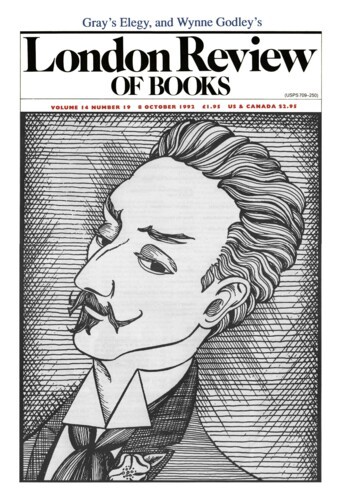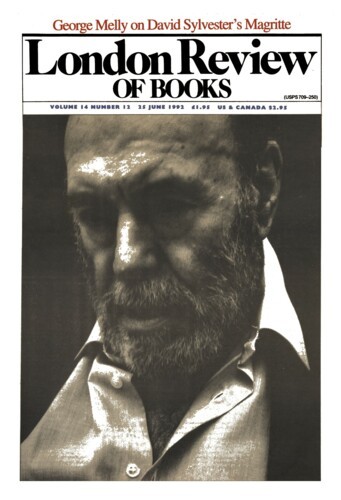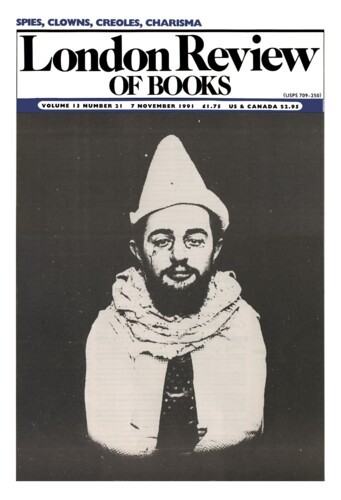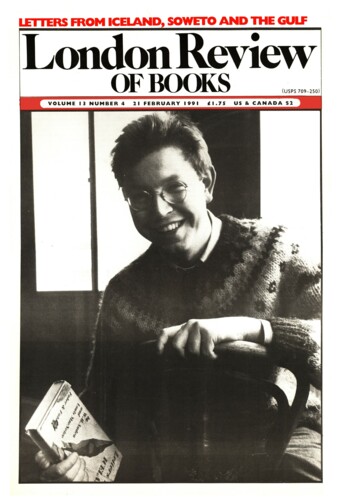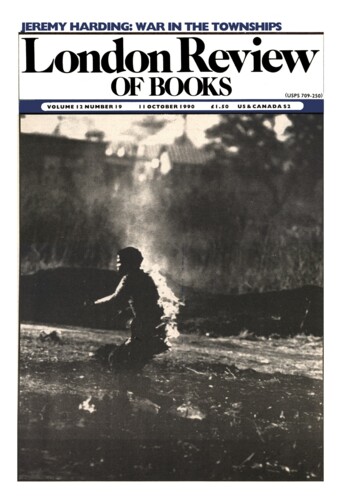Love in the Ruins
Nicolas Tredell, 8 October 1992
In Henry James’s The Golden Bowl, the Prince found by the River Thames ‘a more convincing image of the truth of the ancient state than any they have left by the Tiber’. Of course, the truth of the ancient state, like the truth of the British state at the turn of the 19th century, was not necessarily a wholly savoury one. Conrad had already imagined the great imperial waterway as leading to – and from – the heart of darkness, and by 1922, The Waste Land was to find by the Thames the signs of an imperium in full decadence. Glyn Maxwell, in 1992, offers his own vision of riparian decay:’
